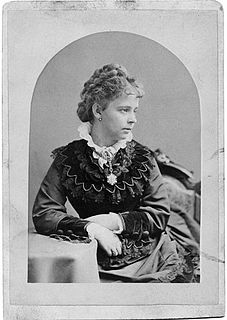A Quote by Alice Morse Earle
The first and most natural way of lighting the houses of the American colonists, both in the North and South, was by the pine-knots of the fat pitch-pine, which, of course, were found everywhere in the greatest plenty in the forests.
Related Quotes
Most of us who were opposed to the war, especially in the early '60's - the war we were opposed to was the war on South Vietnam which destroyed South Vietnam's rural society. The South was devastated. But now anyone who opposed this atrocity is regarded as having defended North Vietnam. And that's part of the effort to present the war as if it were a war between South Vietnam and North Vietnam with the United States helping the South. Of course it's fabrication. But it's "official truth" now.
Is it the lumberman, then, who is the friend and lover of the pine, stands nearest to it, and understands its nature best? Is it the tanner who has barked it, or he who has boxed it for turpentine, whom posterity will fable to have been changed into a pine at last? No! no! it is the poet: he it is who makes the truest use of the pine-who does not fondle it with an axe, nor tickle it with a saw, nor stroke it with a plane. . . .
In contrast, Western historians, and those in South Korea, say the North attacked the South on June 25, 1950. Both sides agree that after the war began, the North Korean Army captured Seoul in three days and pushed as far south as Pusan before American troops arrived to drive back the North Koreans nearly as far north as the border to China.
How far men go for the material of their houses! The inhabitants of the most civilized cities, in all ages, send into far, primitive forests, beyond the bounds of their civilization, where the moose and bear and savage dwell, for their pine boards for ordinary use. And, on the other hand, the savage soon receives from cities iron arrow-points, hatchets, and guns, to point his savageness with.
Strange that so few ever come to the woods to see how the pine lives and grows and spires, lifting its evergreen arms to the light,--to see its perfect success; but most are content to behold it in the shape of many broad boards brought to market, and deem that its true success! But the pine is no more lumber than man is, and to be made into boards and houses is no more its true and highest use than the truest use of a man is to be cut down and made into manure.
i'm a perfectionist, so i'm never satisfied with myself. i've always been psychotic about that kind of stuff--in a good way. i'm very disciplined. like the food and the whole thing, i'm always looking to "how can i eventually just turn into a ball of light and fly off the planet?". until that happens and God basically pull the blinds back, i will not be satisfied... if i found out that if i ate pine nuts for the next month i could see God, i'd be eating pine nuts.
South America had been an island continent, far bigger and far more diverse than Australia, for tens of millions of years before the Isthmus of Panama rose just a couple of million years ago. The resulting flood of North American mammals across the new land bridge corresponds in time with the decimation of the native South American fauna. In fact, most large mammals generally considered distinctly South American... are all recent migrants from North America.


































